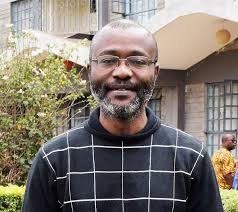Sub-Saharan African societies, generally described as community-oriented, are often compared with Western societies, generally pictured as individualistic. But this simplistic divide can be misleading. The postcolonial predicament in Sub-Saharan Africa is a complex conundrum that encapsulates various dialectical processes involving the constant renegotiation of the relations between community and the individual, belonging and autonomy, submission and rebellion, and authority and autonomy. Gender relations and sexuality are one of the main fields of the renegotiation of values, identities, and power relationships. Who sets the norms, in what capacity, and for whom? Sub-Saharan Africa actively participates in the generation and propagation of gender theories. The repercussions of these theories on public and social policies are prompting heated debates on long-standing beliefs and practices about sexuality, marriage, and family.
The present research project focuses on one case which encapsulates many facets of the debates between religious constituencies and secular authorities: the recent reform of the family code in Ivory Coast. The adoption in 2013 of a new family code that redefines power dynamics within marriage by institutionalizing equality between husband and wife sparked heated debates about gender roles in Ivorian society. The official explanation given by the Ivorian government amidst the controversy surrounding the revision of the family code was that Ivory Coast had to honor its international commitments, having signed the convention on gender equality. But further prompting revealed that it was also a condition the Ivorian state had to fulfill to access a particular fund related to Millennium Development Goals (MDGs). The revision of the family code was handled mostly as a political process at the parliament without much consultation of people at the grassroots level. Instead, parliamentarians consulted with a number of NGOs, both national and international.
There is an emerging debate between the religious and the secular constituencies of Ivorian society on attempts to enforce a more liberal framework of sexual morality and gender practices. The enforcement of gender equality and the emerging debate on homosexuality and gay marriage are generally perceived by religious authorities, both Catholic and Islamic, as a threat to traditional morality on gender roles, sexuality, and family. African traditional religious authorities also see these changes as a violation of African traditional values. These debates are often occasions for religious authorities to voice their concerns about what they perceive as the pitfalls of modernity or instances of moral decline.
The current project investigates the terms of the emerging debate between the secular and the religious on the changing patterns of gender relations and sexuality in contemporary Ivorian society, with a focus on the related reconfiguration of authorities, communities, and identities. In other words, the main research question is: how are Catholic, Islamic, and secular constituencies of contemporary Ivorian society engaging with new conceptions of sexuality and gender relations, and what are the related patterns of authority, community, and identity?
My overall argument and major hypothesis is that contemporary Ivorians, as postcolonial subjects, operate within multiple layers of community, authority, and identity, including the religious and the secular, and are selectively embracing the modern liberal normative framework regarding sexuality and gender relations. The Ivorian state, with its secular claims, is often caught between the international pressure aimed at reshaping its public values and institutions in order to accommodate the liberal agenda, and the local resistance of major sections of the population often supported by religious authorities.
Regarding collective representations, the study investigates the values, beliefs, perceptions, social representations, and norms underlying the debate around the changing patterns of gender power relations and sexuality in Côte d’Ivoire. It further explores the changes in relation to roles and positions, individual, and collective identities as well as the resulting forms of cooperation conflicts and compromises. I will give particular attention to inherent forms of authority and the ability of institutions (religious, political, administrative, social, and cultural) to direct, maintain, modify, or control standards and established practices.

